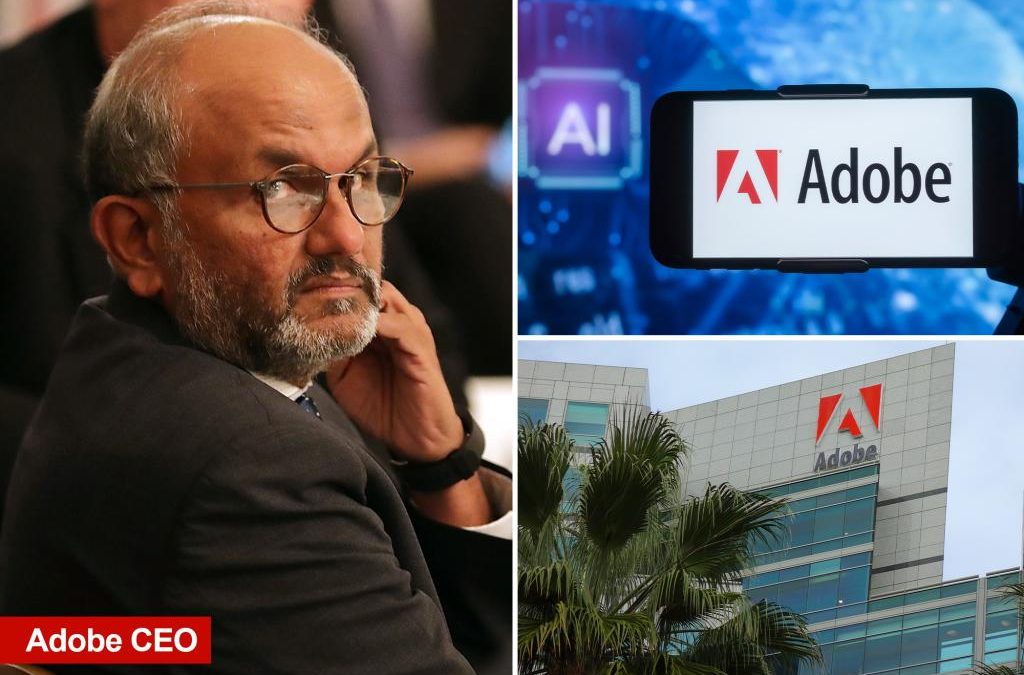Adobe employees raised red flags about their company’s new generative AI features, fearing the enhanced design tools could spur clients to fire workers, according to a report.
The Silicon Valley-based multinational best known for its Photoshop and Acrobat software recently rolled out Firefly, a generative AI tool that allows users to extend images and add or remove objects using text prompts.
“Users have now generated over half a billion assets on the Firefly website and in Photoshop, making these two of our most successful beta releases in company history,” Adobe CFO Dan Durn boasted in June.
However, Adobe staffers were less enthusiastic about Firefly’s rapid success and questioned whether the AI tool will allow companies to eliminate designers, according to internal messages viewed by the news site Insider.
“Is this what we want?” a senior designer at Adobe recently wrote in an internal Slack channel, Insider reported.
Other Adobe employees described the future in bleak terms, calling the AI explosion “depressing” and an “existential crisis” for designers.
But supporters of Adobe’s AI boom predicted that designers can use the tools to increase efficiency and boost output.
“I don’t think we should feel guilty for providing better and faster tools, as long as it’s done ethically,” one proponent wrote in the internal Slack channel.
The Post has sought comment from Adobe.

The speed at which businesses have deployed AI is fueling concerns that humans could eventually be replaced in a variety of knowledge-based industries.
In March, Goldman Sachs predicted in a report that AI could eventually supplant 300 million full-time jobs worldwide, particularly those of administrative workers and lawyers.
The rapid pace at which AI has developed has prompted tech industry insiders and experts such as Elon Musk to call for a moratorium on research.

Other notable signers of the letter calling for a pause include Apple co-founder Steve Wozniak, Pinterest co-founder Evan Sharp and at least three employees affiliated with DeepMind, an AI research lab owned by Google parent Alphabet.
In April, Microsoft-backed OpenAI unveiled the fourth iteration of its GPT (Generative Pre-trained Transformer) AI program, which has wowed users by engaging them in human-like conversation, composing songs, and summarizing lengthy documents.
Adobe, meanwhile, has seen its stock soar more than 60% in the past year. Shares closed at $549.10 Tuesday, up 0.5%.
The company recently reported revenue of $4.82 billion for the quarter ended June 2, compared to analysts’ estimates of $4.77 billion.
Analysts see generative AI as both a near- and long-term benefit to both the creative and experience businesses, which could be a catalyst to 2024 revenue growth.
Adobe forecast current-quarter revenue to be in the range of $4.83 billion to $4.87 billion and raised FY 2023 revenue to between $19.25 billion and $19.35 billion, both on the higher end of analysts’ estimates, according to Refinitiv data.
Source




